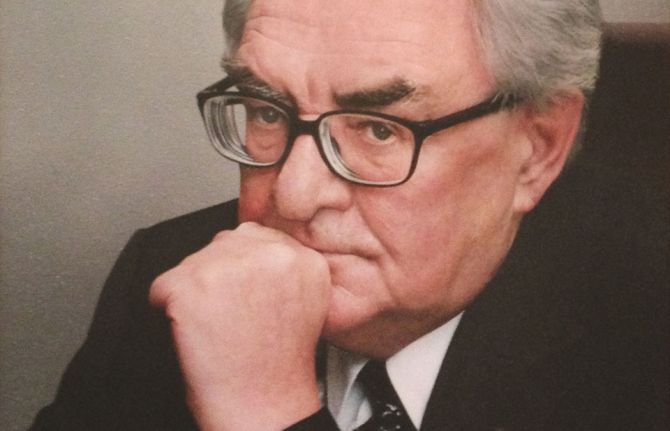

Feature Story
UNAIDS saddened by the death of Valentin Pokrovsky, a Russian leader on HIV, medicine and pandemic preparedness
30 October 2020
30 October 2020 30 October 2020By Alexander Goliusov, Director, Regional Support Team for Eastern Europe and Central Asia
When I was a young epidemiologist working at the Soviet Ministry of Health, Valentin Pokrovsky was respected as someone who was bigger than life—a living legend. He was already respected as the Director of the Central Research Institute of Epidemiology, the leading centre in the Soviet Union for research and expertise on responding to epidemiological outbreaks.
In the mid-1980s, when growing numbers of AIDS cases were being reported in other countries, some hoped that HIV would never reach the Soviet Union. I remember Mr Pokrovsky speaking out publicly, reminding officials, health workers and the public that we all needed to treat HIV as a serious risk to health. In 1987, he led the medical team that diagnosed the first person with AIDS in Moscow. His public insistence that this was just the first diagnosed case of AIDS was critical to mobilizing the early response to HIV across the Soviet Union.
Even after the end of the Soviet Union, I remember how Russian health workers and policymakers still looked to Mr Pokrovsky for training, leadership and expertise. Epidemiologists who studied under him at the Institute of Epidemiology always inspired admiration and perhaps even a little jealousy. They were always some of the best trained epidemiologists in the Russian Federation. They were ready to be at the forefront of investigating outbreaks of HIV, anthrax or diphtheria. During each of these outbreaks, Mr Pokrovsky encouraged health workers, the Ministry of Health and local officials to follow the science, collect the data and save lives. During this period of transition, he was called on to lead the first Russian Academy of Medical Sciences, from 1992 to 2006. Long after many colleagues from his generation had already retired from official roles and research, he continued to run the Institute of Epidemiology, now part of the Russian Federal Service for Surveillance on Consumer Rights Protection and Human Wellbeing (Rospotrebnadzor).
During his 47 years of leadership at the Institute of Epidemiology, Mr Pokrovsky pioneered many areas of research and prevention, including the prevention of nosocomial infections. Long before HIV, hepatitis C, staphylococcus or COVID-19 were highlighted as high risks for hospital-based infections, he pioneered the national programme on the prevention of nosocomial infections.
When I got the sad news this morning that Mr Pokrovsky had passed away at the age of 91 years, I immediately remembered how generations of Soviet and Russian health professionals and people living with HIV benefitted from his wisdom and dedication. He maintained his advocacy and leadership on HIV, always pushing doctors and officials to collect data and advance research that would have a practical impact on saving lives. In my last conversation with him two years ago, he reminded me that there is no room for complacency:
“Now is not the time to doze off. We have to work much harder to get the HIV epidemic under control.” Valentin Pokrovsky, 1929–2020



